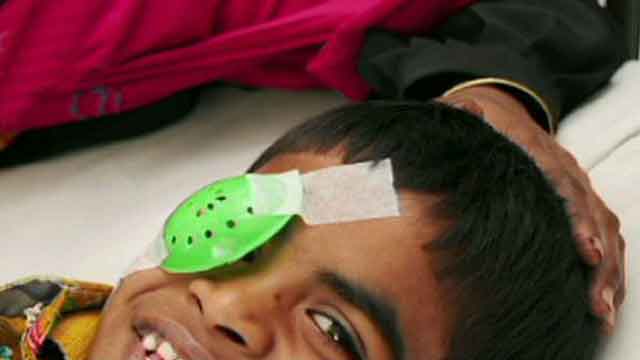Using your smartphone too much can make you go ‘temporarily blind’
If you’re reading this story on your phone, you may want to finish it quickly.
That’s because, according to a new report in the South China Morning Post, looking at your smartphone screen for extended periods can cause you to temporarily go blind.
A man in northwest China experienced this after playing mobile games in the dark. A doctor said the man, surnamed Wang, suffered an eye stroke caused by narrowing blood vessels in the retina. He said it could lead to permanent blindness if not treated quickly.
The doctor, Lei Tao, also said he sees about 20 patients a month with the same or similar symptoms.
“Blockage of the arteries in the retina is sudden, serious and the primary manifestation of eye disease that leads to blindness,” he told the Post. “The occurrence rate is getting higher each year, and there is a trend of younger victims.”
“Using phones and electronic items is a big part of life for young people, which puts excessive strain on their vision,” he added. “This can trigger eye stroke.”
It’s no secret that extended screen use can lead to eye problems, however. In 2017, the Post reported a 21-year-old woman from Dongguan permanently lost sight in one eye after playing games on her phone for an entire day.
And then, there are more common instances: Medical website WebMD said up to 90 percent of people who work at computer screens or tablets have at least some negative side effects on their vision.
When you stare at a screen, the reported explained, “your eyes have to focus and refocus all the time,” and “react to images constantly moving and changing, shifting focus, sending rapidly varying images to the brain.
“To make things worse, unlike a book or piece of paper, the screen adds contrast, flicker and glare," the doctor said. "It is proven that we blink far less frequently when using a computer, which causes the eyes to dry out and blur your vision periodically while working.”
GET FOX BUSINESS ON THE GO BY CLICKING HERE
While smart devices can have a bad impact on eyes if they are overused, they’re also being used to detect eye issues. According to scientific journal AAAS, researchers created CRADLE, or Computer Assisted Detector of Leukoria, that uses machine learning to look for early signs of "white eye" reflections in photos, which could point to cataracts and other conditions.
Researchers tested it with more than 50,000 photos of children and detected eye diseases in half. Of those, the app spotted 16 instances of disease 1.3 years before doctors made a diagnosis. CRADLE has not yet been approved by the Food and Drug Administration.






















